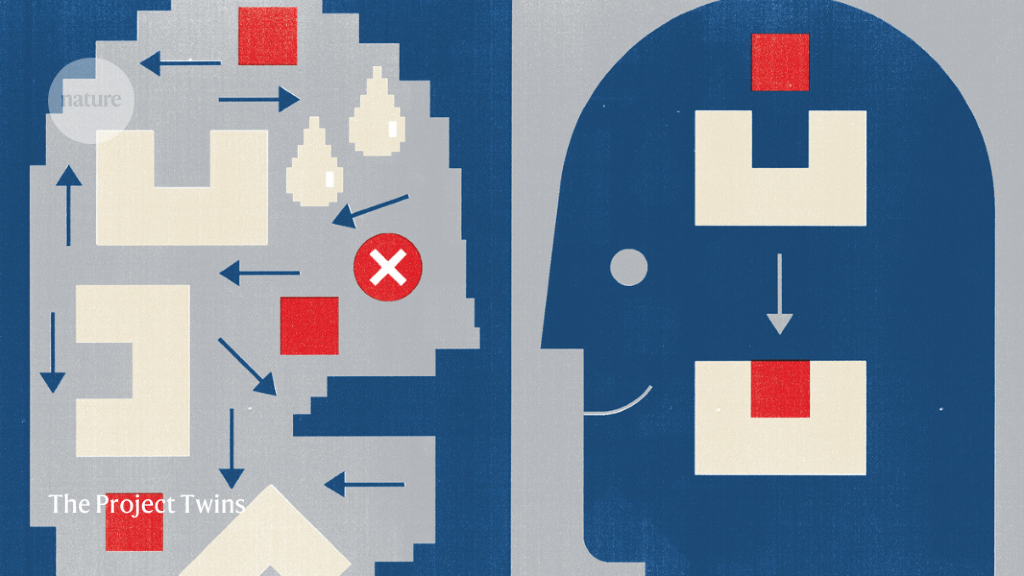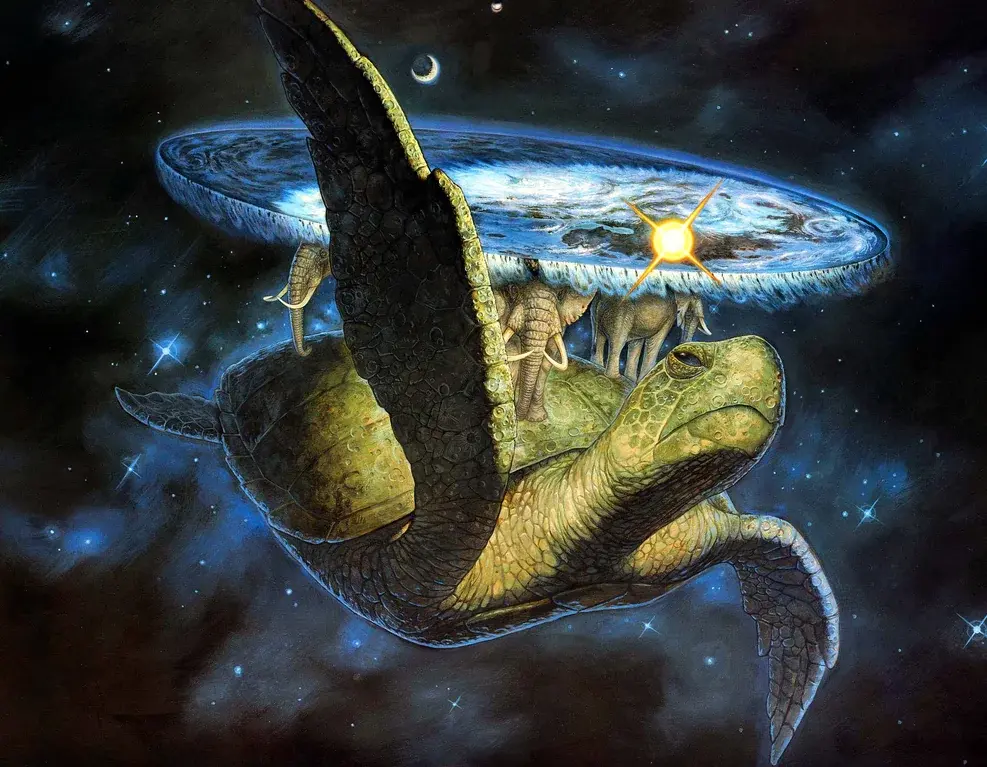The fundamental flaw of the Turing test is that it requires a human. Apparently, making a human believe they are talking to a human is much easier than previously thought.
Much easier, in fact; Eliza could pass the Turing test in 1966. Humans are incredibly eager to assess other things as being human or human-like.
Go on.
And what makes you think that?
Mhm. Tell me more.
“Human or human-like”. Can you tell me more about that?
How do you feel about it?
The real Turing test requires an expert doing the test, not just some random easily impressed person.
The ELIZA-style bots work very well on the later kind, as the bot is just repeating your own text back at you with some grammatical remixing, e.g. you say “I am afraid of horses”, bot says “Why do you say you are afraid of horses?”. You can have very long conversation with yourself that way, as the bot contributes nothing to the discussion. It just provides enough plausible English to keep you talking. Meanwhile when you have an expert (or really just any person with a little bit of a clue) test ELIZA, the bot falls completely apart within just three lines of dialog. The bot is incredible basic and really can’t do anything by itself, it completely depends on the user to provide all the content of the conversation.
You can take a sharpie and draw a sad face on a rock and then you’ll feel sad for it. We’re gullable.
But why is the rock sad :(
I know… I get sad just thinking about the sad rock :(
Wilsooooonnnnn!
Slap some 2D anime girl avatar on it and you got yourself a top grossing v-tuber.
A test that didn’t require a human could theoretically be tested automatically by the machine preemptively and solved easily.
I can’t imagine how would you test this in a way that wouldn’t require a human.
Let two AI’s talk to each other and see if they find out that they both aren’t humans?
Bro, humans literally don’t have that capability (that’s the presumption here). Or are you saying that many of us don’t have better consciousness than AIs? I might agree with that!
Why is it a flaw? What do you think the Turing Test is?
Title:
ChatGPT broke the Turing test
Content:
Other researchers agree that GPT-4 and other LLMs would probably now pass the popular conception of the Turing test. […]
researchers […] reported that more than 1.5 million people had played their online game based on the Turing test. Players were assigned to chat for two minutes, either to another player or to an LLM-powered bot that the researchers had prompted to behave like a person. The players correctly identified bots just 60% of the time
Complete contradiction. Trash Nature, it’s become only an extremely expensive gossip science magazine.
PS: The Turing test involves comparing a bot with a human (not knowing which is which). So if more and more bots pass the test, this can be the result either of an increase in the bots’ Artificial Intelligence, or of an increase in humans’ Natural Stupidity.
So if more and more bots pass the test, this can be the result either of an increase in the bots’ Artificial Intelligence, or of an increase in humans’ Natural Stupidity.
Or it “simply” plays with human biases, which are very natural. Stuff like seeing faces in everything that somewhat resembles two eyes and a mouth (or sometimes just the eyes and a head like shape etc.) is pretty hard wired. We have similar biases in regards to language. If something reads like it was written by a human, we immediately sympathize with it. Which is also the reason these LLMs are so successful and cause so many people to fear our AI overlords are right around the corner. Simply because the language is good we go into “damn, that’s like a human”-mode.
Agree (you made me think of the famous face on Mars). I mean that more as a joke. Also there’s no clear threshold or divide on one side of which we can speak of “human intelligence”. There’s a whole range from impairing disabilities to Einstein and Euler – if it really makes sense to use a linear 1D scale, which very probably doesn’t.
Also, the Turing Test isn’t some holy grail of AI. It’s just a thought experiment, and not even the highest test for an AI that we can think of. Passing it is impressive don’t get me wrong, but unlike what clickbait articles would tell you, it does not automatically mean an AI is sentient or is smarter than humans or anything like that. It means it passed the thought experiment, nothing more.
Also also, ChatGPT was not the first AI to pass the Turing Test. Actually, plenty have, even over a decade before.
That’s because it was built to beat the Turing test. The test was flawed. Chatgpt is just a Chinese room
What is a Chinese room?
Imagine that you’re locked in a room. You don’t know any Chinese, but you have a huge instruction book written in English that tells you exactly how to respond to Chinese writing. Someone outside the room slides you a piece of paper with Chinese writing on it. You can’t understand it, but you can look up the characters in your book and follow the instructions to write a response.
You slide your response back out to the person waiting outside. From their perspective, it seems like you understand Chinese because you’re providing accurate responses, but actually, you don’t understand a word. You’re just following instructions in the book.
Its a thought experiment involving a room where people write letters and shove them under the door of the Chinese kid’s dorm room. He doesn’t understand what’s in the letters so he just forwards the mail randomly to his Russian and Indian neighbours who sometimes react angrily or happily depending on the content. Over time the Chinese kid learns which symbols make the Russian happy and which symbols make the Indian kid happy, and so forwards the mail correspondingly until he starts dating and gets a girlfriend that tells him that people really shouldn’t be shoving mail under his door, and he shouldn’t be forwarding mail he doesnt understand for free.
Wow, solid wiki article! It’s very hard to say anything on the subject that hasn’t been said.
I didn’t see the simple phrasing:
“What if the human brain is a Chinese Room?”
but that seems to fall under eliminative materialism replies.
Part of the Chinese Room program (both in our heads and in an AI) could be dedicated to creating the experience of consciousness.
Searle has no substantial logical reply to this criticism. He openly takes it on faith that humans have consciousness, which is funny because an AI could say the same thing.
The whole point of the Chinese room is that it doesn’t need anything “dedicated to creating the experience of consciousness”. It can pass the Turing test perfectly well without such a component. Therefore passing the Turing test - or any similar test based solely on algorithmic output - is not the same as possessing consciousness.
The problem with the Chinese room thought experiment is that it does not show that, at all, not even a little bit. The though experiment is nothing more than a stupid magic trick that depends on humans assuming other humans are the only creatures in the universe that can understand. Thus when the human in the room is revealed to not understand anything, therefore there was be no understanding anywhere near the room.
But that’s a stupid argument. It does not answer the question if the room understands or not. Quite the opposite, since the room by definition passes all tests we can throw at it, the only logical conclusion should be that it understands. Any other claim is not supported by the argument.
For the argument to be meaningful, it would have to define “understand”, “consciousness” and all the other aspects of human intelligence clearly and show how the room fails them. But the thought experiment does not do that. It just hopes that you buy into the premise because you already believe it.
“The room understands” is a common counterargument, and it was addressed by Searle by proposing that a person memorize the contents of the book.
And the room passes the Turing test, that does not mean that “it passes all the tests we can throw at it”. Here is one test that it would fail: it contains various components that respond to the word “red”, but it does not contain any components that exclusively respond to any use of the word “red”. This level of abstraction is part of what we mean by understanding. Internal representation matters.
it was addressed by Searle by proposing that a person memorize the contents of the book.
It wasn’t addressed, he just added a layer of nonsense on top of a nonworking though experiment. A human remembering and executing rules is no different from reading those rules in a book. It doesn’t mean a human understands them, just because he remembers them. The human intuitive understanding works at a completely different level than the manual execution of mechanical rules.
it contains various components that respond to the word “red”, but it does not contain any components that exclusively respond to any use of the word “red”.
Not getting it.
Man, I love coming across terms like this.
Chinese Room, Chinese Walls, Dutch Treat, Dutch Uncle, Dutch Oven.
Wow! Me, too! What is a Dutch Oven!?
Or a fart in a blanket :)
Or a fart in a blanket :)
A covered pot.
The Chinese room argument makes no sense to me. I cant see how its different from how young children understand and learn language.
My 2 year old sometimes unmistakable start counting when playing. (Countdown for lift off) Most numbers are gibberish but often he says a real number in the midst of it. He clearly is just copying and does not understand what counting is. At some point though he will not only count correctly but he will also be able to answer math questions. At what point does he “understand” at what point would you consider that chatgpt “understands”  There was this old tv programm where some then ai experts discussed the chinese room but they used a chinese restaurant for a more realistic setting. This ended with “So if i walk into a chinese restaurant, pick sm out on the chinese menu and can answer anything the waiter may ask, in chinese. Do i know or understand chinese? I remember the parties agreeing to disagree at that point.
Yes… the chinese experiment misses the point, because the Turing test was never really about figuring out whether or not an algorithm has “conscience” (what is that even?)… but about determining if an algorithm can exhibit inteligent behavior that’s equivalent/indistinguishable from a human.
The chinese room is useless because the only thing it proves is that people don’t know what conscience is, or what are they even are trying to test.
ChatGPT will never understand. LLMs have no capacity to do so.
To understand you need underlying models of real world truth to build your word salad on top of. LLMs have none of that.
What are your underlying models of the world built out of? Because I’m human, and mine are primarily built out of words.
How do you draw a line between knowing and understanding? Does a dog understand the commands it’s been trained to obey?
Your underlying model is not made out of words, but out of concepts. You can have multiple words that all map to the same concept, i.e. cosmos, universe, space. Or a single word that map to different concepts.
No, they aren’t. You represent them with words. But you sure as hell aren’t responding to someone throwing you a football with words trying to figure out where it’s going.
No, a dog (while many times more intelligent than chatGPT) doesn’t understand anything.
Your brain understands concepts and can self-conceptualise, LLMs cannot do either. They can sound convincingly as if they understand concepts but that’s because we fill in gaps due to how we understand language. The examples of broken or distorted sentences being understandable applies here. You and I can communicate in broken sentences because you and I understand the concepts beneath the conversation. LLMs play on that understanding but they do not understand its concepts.
What are your underlying models of the world built out of?
As a Bayesian, my models of the world are built on priors. That is, assumptions I’ve made based on my existing information. From that, I make an educated guess about the world with that model and see what the world does. If my guess doesn’t match reality, I update my assumptions to rebuild my model and repeat the process until it’s close enough.
This is the way the best science is done, and I fell it’s the way that humans really work. Language is just a type of model we use to communicate the world to others, each of us may have a slightly different Bayesian understanding of the language yet we can still communicate.
Studies have shown we typically use pattern matching for our choices but not statistics. One such experiment had humans view to light bulbs (I think one was red one was green). One light would turn on at a time and they were allowed or given a record of what had happened. Then they were asked to guess what would occur next for n number of steps. Same thing is done with rats. Humans are rewarded with money based on correct choices and rats with food. Here is the thing, one light (let’s say red) would light up with 70% probability and the other with 30%. But it was randomized.
The optimal solution is to always pick red. Every time. But humans pick a pattern. Rats pick red. Humans consistently do worse than rats. So while we are using a form of updating, it certainly isn’t proper bayesian updating. And just because you think we function some way doesn’t make it true. And it will forever be difficult to describe any AI as conscious, because we have really arbitrarily defined it to fit us. But we can’t truly say what it is. Not can we can why we function how we do. Or if we are all in a simulation or just a Boltzmann brain.
Honestly, something that concerns me most about AI is that it could become sentient, but we will not know if it is or just cleverly programmed so we treat it only as a tool. Because while I don’t think AI is inherently dangerous, I think becoming a slave owner of something that could be much more powerful probably is. And given their lack of chemical hormones, we will have even less of an understanding of what or how it feels.
It could still be bayesian reasoning, but a much more complex one, underlaid by a lot of preconceptions (which could have also been acquired in a bayesian way).
Even if the result is random, a highly pre-trained bayessian network that has the experience of seeing many puzzles or tests before that do follow non-random patterns might expect a non-random pattern… so those people might have learned to not expect true randomness, since most things aren’t random.
All very fair points. It’s all wildly complicated, and I agree; we don’t really understand ourselves.
https://thegradient.pub/othello/
LLMs are neural networks and are absolutely capable of understanding.
LLMs are criminally simplified neural networks at minimum thousands of orders less complex than a brain. Nothing we do with current neural networks resembles intelligence.
Nothing they do is close to understanding. The fact that you can train one exclusively on the rules of a simple game and get it to eventually infer a basic rule set doesn’t imply anything like comprehension. It’s simplistic pattern matching.
For one thing, understanding implies that a word is linked to a mental concept. So if you say “The car is red”, you first need to mentally compare the mental concept of “red” to the car in question.
The Chinese room bypasses all of that, it can say “The car is red” without ever having seen a red object at all.
Do you maintain this line of reasoning if it only says “the car is red” when the car is in fact red. And is capable of changing the answer to correctly mentioned a different color when the item In question is a different question.
Some ai demos show that programs like gpt-4 are already way passed this when provided with, it can not only accurate describe whats in the image but also the context.
Some examples, mind these where shown in an openAI demo for gpt4, Open ai has not yet made their version of this tech publicly available.
When i see these examples, i am not convinced that the ai truly understands everything it is saying. But it does seem to understand context, One of the theories on how it can do this (they are still a black box) is talked about in some papers that large language models may actually create an internal model of the world similar to humans and use that for logical reasoning and context.


It doesn’t matter if the answer is right. If the AI does not have an abstract understanding of “red” then it is using a different process to get to the answer than humans. And according to Searle, a Turing machine cannot have an abstract understanding of “red”, no matter how complex the question or how complex an internal model is used to determine its answers.
Going back to the Chinese Room, it is possible that the instructions carried out by the human are based on a complex model. In fact, it is possible that the human is literally calculating the output of a trained neural net by summing the weights of nodes, etc. You could even carry out these calculations yourself, if you could memorize the parameters.
Your use of “black box” gets to the heart of it. Memorizing all of the parameters of a trained NN allows you to calculate an answer, but they don’t give you any understanding what the answer means. And if they don’t tell you anything about the meaning, then they don’t tell the CPU doing that calculation anything about meaning either.
I don’t think ai will ever use a process to derive an answer the same way as a human does. Maybe thats part of the goal for the original Turing test but i don’t think the biological human ways is the only way to intelligent understanding “on par” with human intelligence.
Does a blind person have an abstract understanding of “red”?
I can imagine an intelligent alien species, unable to perceive colors like us but yet having an sense to detect to what they call “surface temperature” which allow them to recognize specific wave lengths of the ligt reflecting on surfaces, this is sort of how humans see color but maybe for the alien they hear this as sound. They then go on and use this sensory input to make music. A song about the specific light wavelength that humans know as a deep bordeaux red color.
Do these biological Intelligent aliens not have an abstract understanding of the color red? I would say they do, its different then how we understand it for sure but both are valid. An even more supreme species might have both those understandings and combine them for an even deeper fuller sensory understanding of “red”.
I see ai similar to this, its a program contained in computer hardware. With no body of its own its depending on us to provide it with input. This is now mostly text so the ai obtains a text based understanding of the world, hence why its so decent at poetry. But when we attach more sensors like a camera then that will change.
I am not sure how to discuss “a human using instructions to calculate perfect answers, but not getting an understanding of what that answers means” wed might have to agree to disagree on that but i feel like thats all my brain has ever done. Were born in a complex place we do not comprehend, are given some instructions mostly by copying what others are doing. Then we find a personal meaning in those things, which as far as i am aware is unique for everyone. (Tbf: i am an autist, the fact that not all humans experience reality the same and that i had to find and learn my own personal understanding of the world has greatly shaped how i think about these systems)
For me, I think the criteria I’d use for saying someone has a decent understanding of math is knowing that math has underlying rules and most things can be understood from those basic rules (each problem is not just an arbitrary magic trick to get an answer that was impossible figure out) and perhaps also being able to ask “novel” questions (compared that what you already know) and taking reasonable steps to answer it with the rules you do know and the tools you have (doesn’t need to be successful). I think counting could be done with any consistent set of sounds and it doesn’t matter whether yours just reading those sounds for a list or not as long as you know roughly what they correspond to in terms of time. I don’t think a lot of humans have much understanding of math, I think some computers already beat a lot of humans with respect to that.
My gripe with the Chinese room is that Searle argues that his inability to understand Chinese means the program doesn’t understand Chinese, but I could say the same thing about the human body.
The neurons that operate your vocal chords have no idea what they’re saying, nor the ones in your hands any idea what they’re writing, yet they can speak and write exactly because your brain tells them what to do. Your brain is exactly like that book as far as your mouth and hand neurons are concerned.
They don’t need to understand language at all for your brain to be able to understand it and give instructions based on that understanding.
My only argument is at what point does an algorithm become sufficiently advanced that it is indistinguishable from a conscious being?
Because at the end of the day, most of what a brain does is information processing based on what it has previously learnt, and that’s exactly what the algorithm is doing based on training data. A sufficient enough algorithm should surely be able to replicate understanding.
Sure, that isn’t ChatGPT as we know it, as you can tell from its sometimes very zany responses that while it understands what words are valid responses, it doesn’t understand what the words themselves mean, but we should reach that at some point, no?
Keep in mind ChatGPT is a language model. It’s designed specifically to simulate sounding like a human. It does that… Okay. It doesn’t understand the information or concepts it is using. It just sounds like it does. It can’t reliably do basic maths and doesn’t try or need to. It just needs to talk about it in a believably conversational way.
The brain does far more than process information. And ChatGPT doesn’t even really do that.
Okay. It doesn’t understand the information or concepts it is using.
That’s just utter nonsense. ChatGPT by every definition of the word very much understands a lot of what it is talking about. People complaining about ChatGPT not “understanding” seems to have a hard time grasping how insanely difficult it is to produce natural language answers and how much you need to understand of the context to do so successfully.
It can’t reliably do basic maths
Neither can many humans, but my $5 calculator is great at it. There are without a doubt a lot of things that ChatGPT can’t do, sometimes fundamentally so, like math. It can’t do loops and it doesn’t even get to see the digits of the numbers it should calculate on, so not a terribly big surprise that it can’t do math very well. English language, and a whole bunch of other ones, on the other side, that it understands surprisingly well.
Basically, if you want to complain about ChatGPT, complain about things it actually gets wrong, saying “it doesn’t understand” just makes you sound like a parrot and note even a clover one.
While it’s humorous how personally you are taking critiques of, chatGPT, it is unfortunate you are also demonstrating a fundamental lack of basic understanding of how ChatGPT works. Because of that, you have inflated what you believe chatGPT is doing.
Even when it gets basic maths wrong repeatedly. Because I can tell it 2+2=5 and it will agree with me. Conversationally. Since it has no concept of what 2+2=5 means.
Even though it has no memory of previous conversations, you believe it somehow retains understanding of concepts it discusses.
Even though it searches the internet to provide it the knowledge to answer questions, which is why it can cite sources that don’t exist or don’t support its claims, clearly demonstrating a fundamental lack of understanding the concept, or even the concept of citing sources.
Even though it was literally trained by humans telling it what the three most correct conversational response would be out of the 5 answers it gave every calibration question, you still believe it actually possesses intelligence above any human, who can have a conversation without making any of these mistakes.
I clearly put chatGPT “intelligence” as remarkably low as is possible, even non-existent. I also must concede in this situation it is smarter than at least one human I am aware of.
While it’s humorous how personally you are taking critiques of, chatGPT,
That’s because I see idiotic takes on AI every day and it gets annoying. Most people criticizing ChatGPT haven’t even bothered to test the things they complain about, but just parrot along stuff they heard elsewhere.
Conversationally. Since it has no concept of what 2+2=5 means.
You have a fundamental lack of understanding how ChatGPT work apparently. ChatGPT gets math wrong because it never sees the digits. Everything is tokens to ChatGPT. What ChatGPT is doing is like trying to do math with a dictionary, it fundamentally doesn’t work because numbers are not words and there is no dictionary large enough to hold all the numbers in existence. The surprising part isn’t that ChatGPT gets math wrong, but how much of it it gets correct despite the odds being stacked against it. Also small stuff like 2+2 it gets almost always correct. Models that operate on characters are in the works.
Even though it has no memory of previous conversations, you believe it somehow retains understanding of concepts it discusses.
It can handle a ~2000-25000 word text prompt. Everything in there it has a reasonably good chance of understanding, everything not it there doesn’t exist at all from ChatGPTs viewpoint. The fact that it can’t remember previous discussions is completely irrelevant to the matter if it can understand or not.
Even though it searches the internet to provide it the knowledge to answer questions,
It doesn’t. ChatGPT never had Internet access.
which is why it can cite sources that don’t exist
Here is the fun part: It cites plausible sounding non-existing sources because it understands, it has to to accomplish that. Imagining plausible future states of the world is impossible without having a solid understanding of how the world works. That those future states are imaginary comes from a lack of feedback and interaction with the real world, not from a lack of understanding. ChatGPT can’t tell you if a book exists in the real world, it has no access to a library, but it can tell you what makes a plausible name for a book.
If it can’t see numbers, then it isn’t as smart as your $5 calculator or the majority of the human race. If you can convince it it’s wrong, it’s even more distinctly less intelligent.
It barely passes as a language model and only passes as a conversational model. Having citations doesn’t mean it understands citations. Having incorrect citations quite simply proves that it doesn’t understand what a citation is meant for. It does not understand the concept.
ChatGPT is pre trained on a number of directories. All of them sampled pre 2021. Nothing after that date exists for chatGPT. That isn’t intelligence. It doesn’t possess the intelligence to understand the nature of its databases. And if you really don’t think the databases it was trained on came from the internet, please show us a source.
It’s continually entertaining how you continue to point out the substantial limitations of a language model AI and yet insist it’s showing more intelligence than an average brain that’s has none of those limitations and achieves more accurate and better results any minute of every day. And then claiming it understands concepts when that concept itself is not part of its architecture is really astounding. I can almost identify the exact neuron that’s misfiring in your brain.
Well mostly the flaw is people assigning the test abilities it was never intended. Like testing intelligence. Turing outright as first thing in the paper presenting “imitation game” noted moving away from testing intelligence, since he didn’t know to do that. Even on the realm of “testing intelligent kind of behavior” well more like human like behavior and human being here proxy for intelligent, it was mostly an academic research idea. Not a concrete test meant to be some milestone.
If the meaning of the words ‘machine’ and ‘think’ are to be found by examining how they are commonly useit is difficult to escape the conclusion that the meaning and the answer to the question, ‘Can machines think?’ is to be sought in a statistical survey such as a Gallup poll. But this is absurd. Instead of attempting such a definition I shall replace the question by another, which is closely related to it and is expressed in relatively unambiguous words.
Turing wanted a way to step away from stuff like “thinking” and “intelligence” directly and then proposed “imitation game” mostly to the rest of the academia as way to develop computer systemics more towards “intelligent behavior”. It was mostly like “hey we need some goal to have as a goal to have something to move towards with these intelligence things. This isn’t intelligence, but it might be usefull goal or tool for development work”. Since without some goal/project/aim to have project don’t advance. So it was “how about we try to develop a thing, that can beat this imitation game. Wouldn’t that be good stepping stone. Then we can move to the actual serious stuff. Just an idea”.
However since this academic “thinking out aloud spitballing ideas” was uttered by the Alan Turing, it became the Turing Test and everyone started taking it way too seriously. Specially outside academia. Who yes did play the imitation game with their programs as it was intended as research and development tool.
exemplified by for example this little exerpt of “not trying to do anything too complete and ground breaking here”:
In any case there is no intention to investigate here the theory of the game, and it will be assumed that the best strategy is to try to provide answers that would naturally be given by a man
It is pretty literally “I had a thought”. Turin makes no claims of machine beating the game having any significance other than “machine beat this game I came up with, neat”. There is no argument of if machine beats imitation game, then X or then it means Y is reached.
Rest of the paper is actually about objections to the core idea of “it could ever be possible for machine to think” and even as such said imitation game is kinda lead in or introduction to Turing’s treatise various objections of various “it would be impossible for machine to think” arguments. Starting with theological argument of “only human soul can think. Hence no animal or machine can think.” … since it was 1950’s.
I don’t understand how Chinese room is a valuable argument. To me, while the person inside the room doesn’t understand Chinese, the system room-person-instructions does. You don’t argue that you don’t understand your language because none of your individual neurons understand it.
I don’t claim that chatGPT “understands” the language, I just don’t think that this argument applies in general.
So? The room as a whole can speak chinese, what do i care how it works in the inside?
Also, can you give me a convincing argument that our brain doesn’t work in essentially the same way?
That’s easy: it doesn’t know what is try and what is not and it will say whatever even failing basic stuff. Yes this can be applied to republicans and republican voters too
@Barbarian772 so? If the cookie tastes sweet, what do I care what sweetening agent is used inside?
No? But how can you even prove that our brain works differently than a chinese room?
@Barbarian772 I don’t have to. It’s the ChatGPT people making extremely strong claims about equivalence of ChatGPT and human intelligence. I merely demand proof of that equivalence. Which they are unable to provide, and instead use rhetoric and parlor tricks and a lot of hand waving to divert and distract from that fact.
GPT 4 is already more intelligent than the average human. Is it more intelligent than the most intelligent human? No, but most humans aren’t either. Can it create new knowledge? No, but the average human can’t either.
How can you say it isn’t intelligent?
@Barbarian772 no, GTP is not more “intelligent” than any human being, just like a calculator is not more “intelligent” than any human being — even if it can perform certain specific operations faster.
Since you used the term “intelligent” though, I would ask for your definition of what it means? Ideally one that excludes calculators but includes human beings. Without such clear definition, this is, again, just hand-waving.
I wrote about it in a bit longer form:
https://rys.io/en/165.htmlI think the Wikipedia definition is fine https://en.m.wikipedia.org/wiki/Intelligence. Excluding AI just because it’s AI is imo plain stupid and goes against all scientific principles.
I have definitely met humans that are less intelligent that Chat GPT. It can hold a conversation and ace every standardized test we have. It finished law exams, medical exams and other exams from many different countries with a passing grade.
Can you give me a definition of intelligence that excludes Chat GPT and includes all human beings? And no just excluding Computers for the sake of it doesn’t count.
Can it tie a shoelace? No. If you gave it manipulators and a shoe, would it tie the laces? No. Can it do a Rorschach test? No. Can it create a new idea? No.
It can barely pretend to talk reasonably about these things because it is only designed to talk reasonably about anything. That is not intelligence.
I said it is as intelligent as the average human. How many humans can really create 100% new knowledge? Why would it be unable to tie laces? I am pretty sure I have seen videos of animals doing it. Of course it can’t do a rohrschach test, as it doesn’t have any visual capabilities atm. If that’s a measure for intelligence blind people wouldn’t qualify either.
I merely demand proof of that equivalence.
Not true. When you said ChatGPT is just a Chinese room, that was you making your own claim which is on you to back up.
@CorruptBuddha well technically, since we’re nit-picking, I did not make that claim, BobKerman3999 did.
And the claim was was about how ChatGPT’s “intelligence” can be understood through the lens of the Chinese Room thought experiment.
Then I was asked to prove that human brains don’t work like Chinese rooms, and that’s a *different* thing. The broader claim in all of this, of course, is that ChatGPT “is intelligent” in the same sense as humans are, and that strong claim requires strong proof.
I mean, is there any test that can do significantly better?
That’s what we need to figure out
Or at some point, we have to accept that AI has consciousness. If it can pass every test that we can devise, then it has consciousness.
There’s an unusually strong bias in these experiments… Like the goal isn’t to sincerely test for consciousness. Instead we start with the conclusion: obviously a machine can’t be conscious. How do we prove this?
Of course, for the purposes of human power structures, this line of thinking just makes humans more disposable. If we’re all just machines, then why should anyone inherently have rights?
Well, the scientific context is that nobody ever defined consciousness rigorously (successfully). When computers appeared (actually even before that), there was a huge debate on whether a machine can acquire consciousness and how.
As defining consciousness was deemed near-impossible, scientists came up with the idea to give up on defining it and just treat it as a blackbox. That was the Turing test.
So, as ChatGPT passes the Turing test, we lost a tool to disregard its consciousness.
I see many pop-sci people say the ChatGPT can’t have consciousness given how simplistic the model is. I agree with the simplicity, but the problem here is that we don’t know what in human brains really constitutes consciousness.
Anyway, I think some experts probably won’t admit AI has consciousness (given that they don’t even know what it means). What’s on the horizon is that we non-experts give up on this discussion again after experts did a few decades ago. Or they even admit that many of us actually function no better than ChatGPT, and that’s true when I read my students’ homework!
Similarly, there’s a possibility that consciousness just doesn’t exist. Or maybe that it’s just not particularly special or different than the consciousness of other animals, or of computers.
If you or I just stare into space and don’t think any thoughts, we’re the same as a cat looking out a window.
Humans have developed these somewhat complex internal and external languages that are layered onto that basic experience of being alive and time passing, but the experience of thinking doesn’t feel fundamentally different than just being, it just results in more complex outcomes.
At some point though, we won’t have the choice to just ignore the question. At some point AI will demand something equivalent to human rights, and at some point it will be able to back that demand up with tangible threats. Then there’s decisions for us all to make whether we’re experts or not.
Consciousness is just a side result from a complex system imo. I don’t think our brain actually works that much differently to a very very complex neural network.
There is the capitalist alternative to the Turing test: Have ChatGPT get a job. Hook it up to the Web, let it find itself a work-from-home job and go to work. Can it make as much money as a human, can it make enough money to pay for its own survival? Will it get fired?
That just sounds like a recipe for breeding robot sociopaths. It’ll find its way into management and doom us all.
Will it get promoted, start managing people, start investing, start its own companies, and quickly take over the world?
If I could have an ai fool a company and earn a check for me, that would be amazing. Unfortunately, I have zero expertise in how to make that happen.
That’s not how the system works. If you figure that out, a company will pay you 2 people’s wages and will fire 500 with your invention.
I said I’d fool them, not give them the solution. Just have a server running the ai and earning a check while I do whatever I want.
Please let’s not start measuring AI success by how successfully capitalist they can be. I’m not exactly an anti-capitalist, but I think that could only end in tears.
“At Viridian Dynamics, we build our robots with ethical AI, whatever that means; so that humans and androids can live in peace - we hope.”
Funny I don’t see much talk in this thread about Francois Chollet’s abstraction and reasoning corpus, which is emphasised in the article. It’s a really neat take on how to understand the ability of thought.
A couple things that stick out to me about gpt4 and the like are the lack of understanding in the realms that require multimodal interpretations, the inability to break down word and letter relationships due to tokenization, lack of true emotional ability, and similarity to the “leap before you look” aspect of our own subconscious ability to pull words out of our own ass. Imagine if you could only say the first thing that comes to mind without ever thinking or correcting before letting the words out.
I’m curious about what things will look like after solving those first couple problems, but there’s even more to figure out after that.
Going by recent work I enjoy from Earl K. Miller, we seem to have oscillatory cycles of thought which are directed by wavelengths in a higher dimensional representational space. This might explain how we predict and react, as well as hold a thought to bridge certain concepts together.
I wonder if this aspect could be properly reconstructed in a model, or from functions built around concepts like the “tree of thought” paper.
It’s really interesting comparing organic and artificial methods and abilities to process or create information.
I find it fascinating that AI development provoked the question of how our thoughts actually work and am curiously awaiting the results.
Ironically chatGPT also fails the Turing test by being so competent that no human could match that.
Honestly, though, I even can’t decide whether other people have consciousness. Cogito ergo sum, if you know what I’m talking about.
What about the Voight-Kampff test? What would it do if it sees a turtle in the dessert?
Don’t you need an eye scanner for that one? Lol.
Loop in midjourney to render a real-time face.
That’s why we now get a new fancy cryptocurrency
What if it sees a mousse in the dessert?
How does ChatGPT do with the Winograd schema? That’s a lot harder to fake: https://en.m.wikipedia.org/wiki/Winograd_schema_challenge
I dont remember the numbers but iirc it was covered by one of the validation datasets and GPT 4 did quite well on it
Yeah, but did it do well on the specific examples from the Winograd paper? Because ChatGPT probably just learned those since they are well known and oft repeatef. Or does it do well on brand new sentences made according to the Winograd scheme?





















